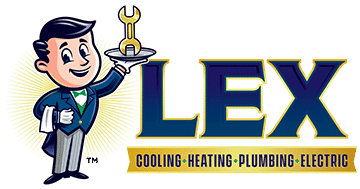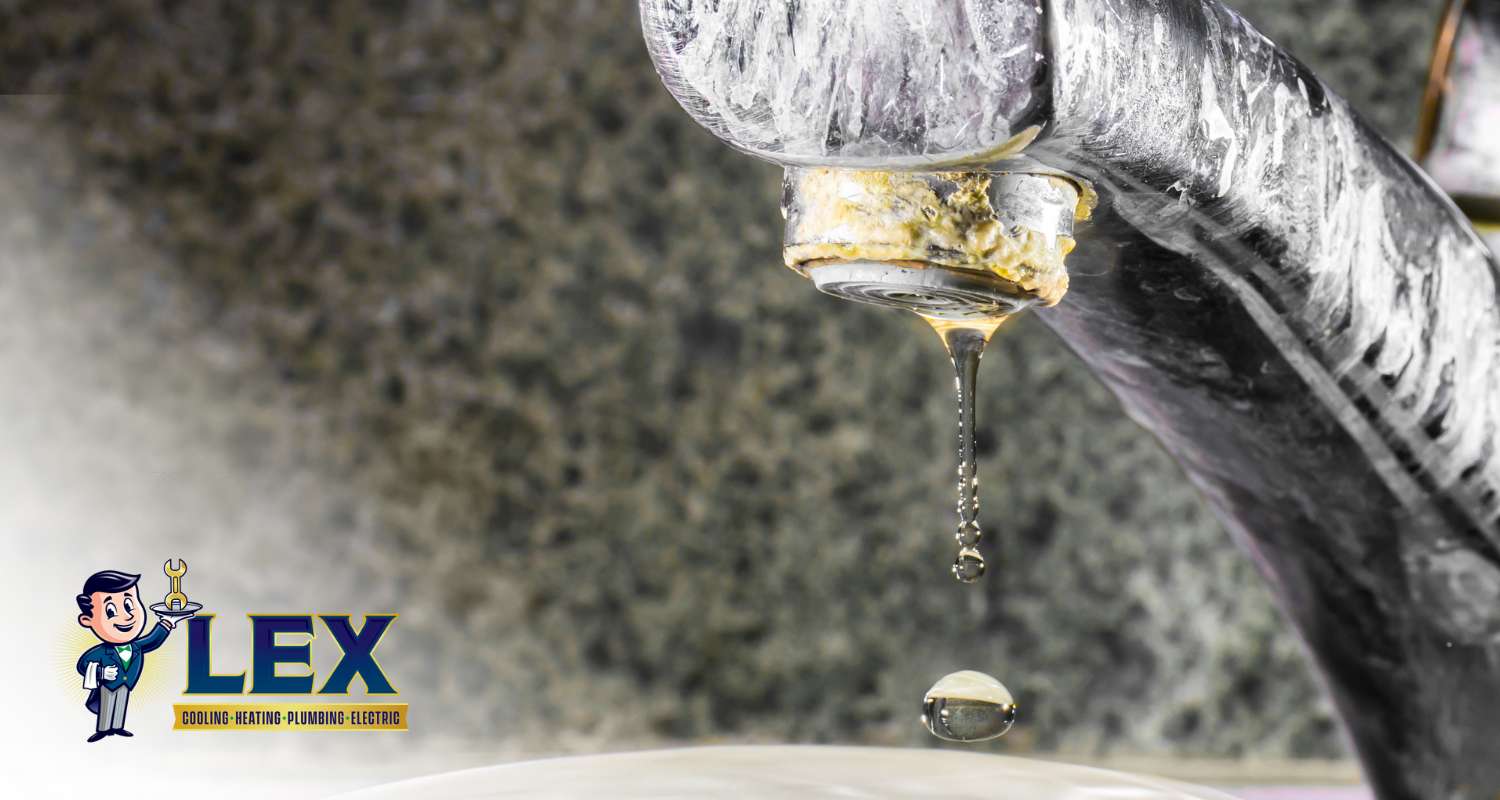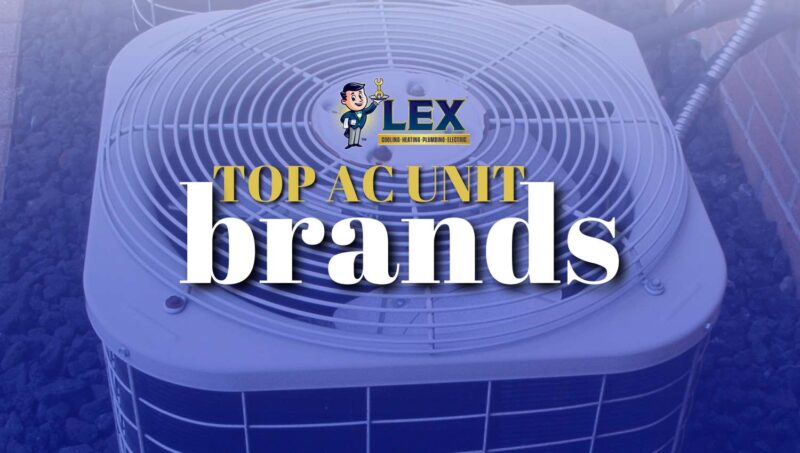Is hard water wreaking havoc on your home and health? You’re not alone. Many homeowners in North Texas and throughout the country experience the disadvantages of hard water on a daily basis, but some may not even notice or otherwise aren’t aware that they can fix it.
The minerals in hard water, which include things like dissolved calcium and magnesium salts, can lead to dry skin, limescale buildup on fixtures, stiff laundry, and a number of other problems. Needless to say, the impact of these minerals on your water supply can be significant and frustrating, affecting everything from your appliances to your personal well-being.
Don’t let water hardness disrupt your life any longer. Read on to learn how hard water’s disadvantages can interfere with your daily routines or contact Lex Plumbing in Carrollton, TX, at (972) 217-8955 for expert solutions and effective treatments. Let us help you enjoy the benefits of softened water today!
What is Hard Water?
Hard water contains high concentrations of minerals like calcium and magnesium. These minerals, particularly calcium carbonate and magnesium salts, contribute to water hardness.
Hard water forms when surface water percolates (or seeps) through mineral-rich surfaces like soil and rock, dissolving minerals along the way. As a result, calcium and magnesium ions are picked up, leading to hard water. High concentrations of these dissolved minerals can cause limescale buildup in plumbing and reduce the effectiveness of soaps and detergents.
Difference Between Hard and Soft Water
Understanding the difference between hard and soft water is key to addressing water quality issues in your home. As we just learned, hard water contains higher concentrations of magnesium and calcium, which lead to the formation of white scaling and hard water deposits in your water supplies.
In contrast, soft water has low levels of these minerals. It is treated with chemicals that replace magnesium and calcium ions with sodium or potassium ions, making it gentler on pipes and appliances.
This difference in mineral content is what sets hard and soft water apart, impacting everything from cleaning effectiveness to the longevity of your plumbing system.
How to Tell If You Have Hard Water
Determining whether you have hard or soft water is relatively straightforward. You likely have hard water if you notice:
- Soap Scum – if soap doesn’t lather well and leaves a residue on your skin, hair, and bathroom fixtures
- Scale Buildup – if you have white, chalky deposits on faucets, showerheads, and inside pipes and appliances
- Stiff Laundry – if your clothes feel rough and stiff after washing and/or colors fade faster
- Dry Skin and Hair – if your skin feels dry and itchy and your hair is dull and lifeless
- Spots on Dishes and Glassware – if cloudy spots and streaks appear on your dishes and glassware after washing
- Low Water Pressure – if your home or business experiences low water pressure (caused by scale buildup)
- High Energy Bills – if scale buildup in water heaters makes them less efficient and increases energy consumption
- Frequent Plumbing Issues – if you find yourself frequently dealing with clogged pipes and appliances needing repairs or replacements more often
It’s also important to note that certain regions may be more prone to the disadvantages of hard water. Geographic areas prone to hard water issues often have higher levels of natural mineral deposits in the soil and rock. Regions like the Midwest and Southwest of the United States are particularly affected. Here in Carrollton, TX, hard water is especially prevalent due to the mineral-rich groundwater.
If you notice any of these signs, it might be time to test your water for hardness and consider solutions to address the problem. If you notice these signs, it’s likely that your water is hard. Call a Carrollton plumbing service professional at Lex Air to inspect your water quality and recommend ways to resolve the problem.
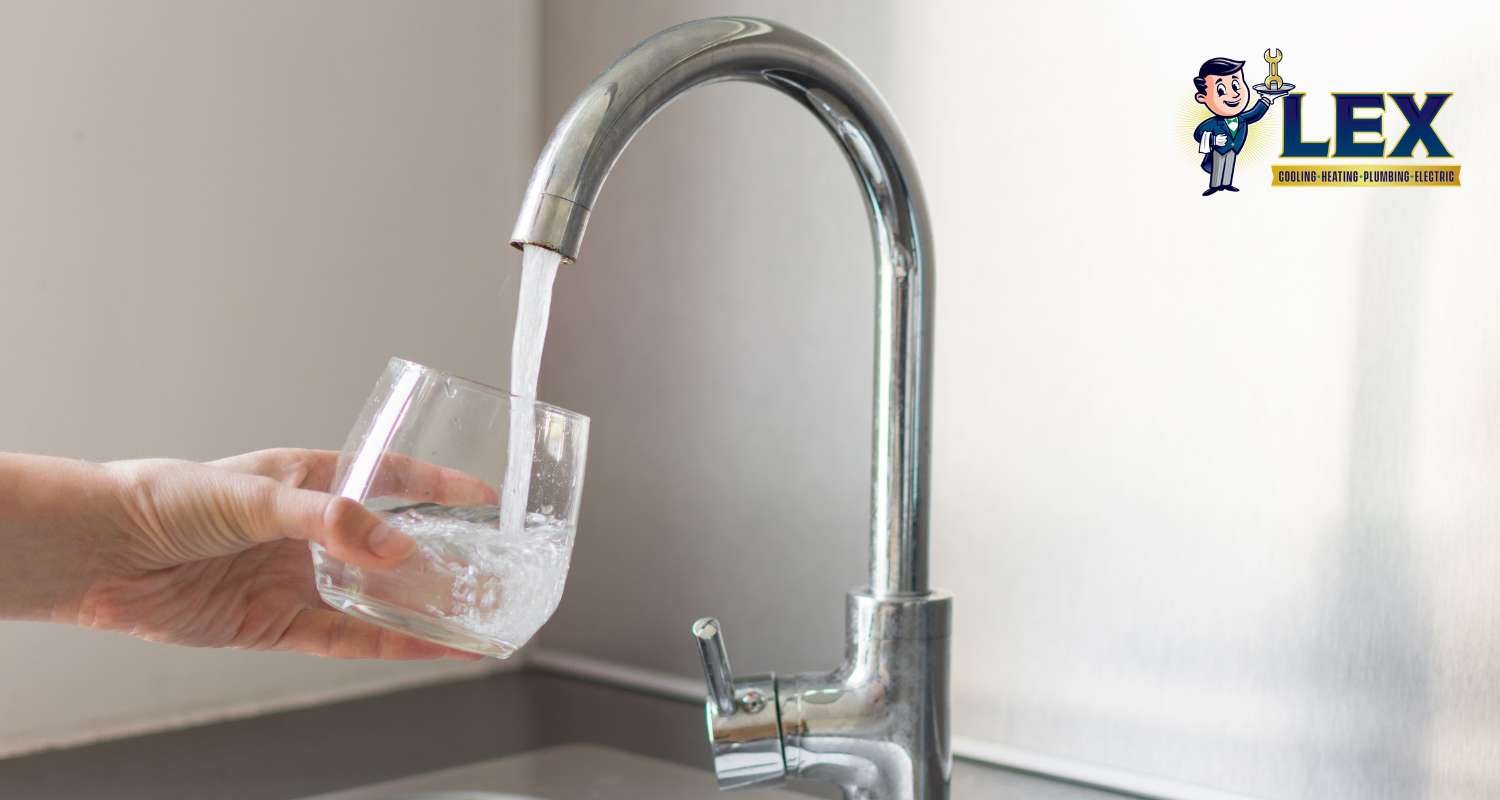
Is Hard Water Bad for You?
Hard water isn’t harmful to health, per say, but it’s worth noting the high concentration of minerals can cause skin and hair dryness. It can also make soaps less effective, leading to residue buildup. While it doesn’t pose serious health risks as drinking water, the effects on skin and hair can be uncomfortable for some individuals.
Can You Drink Hard Water?
Yes, you can drink hard water. Drinking hard water with high magnesium concentrations is generally safe and not hazardous to your health. In fact, the minerals found in hard water, like calcium and magnesium, can contribute to your daily dietary needs.
However, if you prefer to avoid the taste or potential minor effects, you can opt for bottled water or install a water softener at home.
The Damaging Effects of Hard Water
Although hard water isn’t particularly detrimental to your health, it still brings a range of damaging effects that can impact daily life. The high mineral content can have far-reaching consequences, from household cleaning challenges and personal care issues to the strain on household appliances.
We’ve already touched on a few of the major disadvantages of hard water in your home or business, but below, we’ll go into more detail about just how much a hard water supply can impact various aspects of your life.
Effects of Hard Water on Household Appliances
As you now know, hard water can lead to corrosion and scale buildup in household appliances, reducing their efficiency and lifespan. Plumbing fixtures, dishwashers, and washing machines often suffer from these effects. Scale deposits on heating systems can also cause these appliances to work harder, increasing energy consumption and maintenance costs.
- Pipes and Fixtures: Mineral deposits from hard water tend to accumulate in plumbing systems, causing scale buildup. This reduces water flow and pressure, leading to potential blockages and increased wear on pipes and fixtures.
- Water Heaters: Scale buildup on the heating element of your Carrollton water heater can make it far less energy efficient, as the buildup forces the water heater to work harder to heat the water, leading to increased energy consumption and higher utility bills.
- Other Household Appliances: Hard water can significantly shorten the lifespan of dishwashers, washing machines, and other water-using appliances. Over time, the continuous wear and tear from hard water can make appliances less reliable and more costly to operate. As a result, these issues often result in more frequent repairs and replacements, increasing maintenance costs and overall household expenses.
Impact on Personal Care
Hard water can noticeably impact personal care, causing hair to become dull and lifeless and potentially leading to skin irritation. This is because the minerals in hard water prevent soap from lathering well, leaving residue that can dry out the skin and affect overall hygiene.
- Skin: Hard water strips the skin of moisture, leading to dryness and irritation.
- Hair: Hard water causes minerals to build up on your hair, making it dry, brittle, and difficult to manage.
In contrast, soft water helps retain skin hydration and keeps hair healthier, softer, and more manageable, improving overall personal care and comfort.
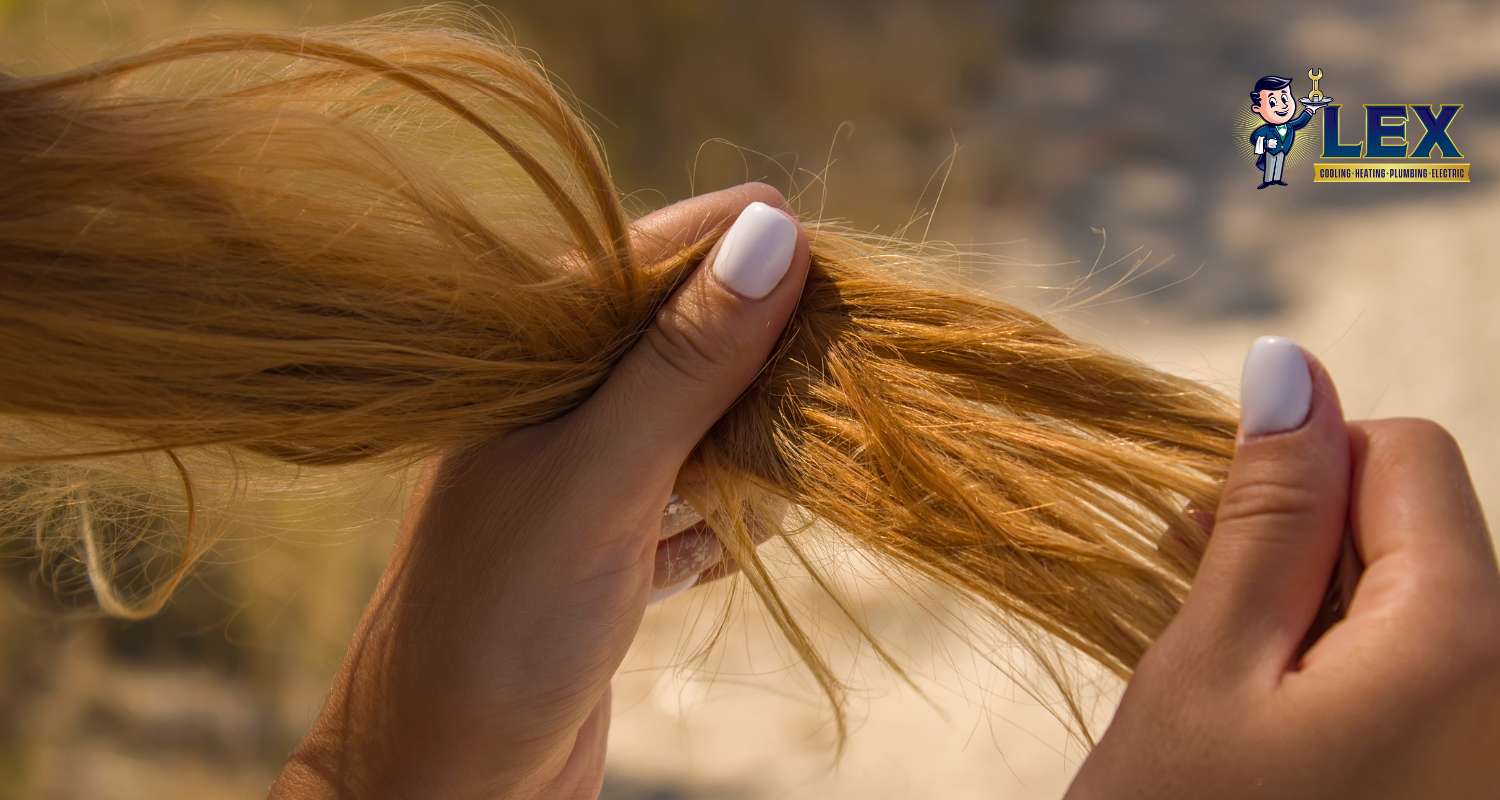
Household Cleaning Challenges
Hard water creates significant household cleaning challenges, including soap scum accumulation, laundry issues, and stains and spots on dishes and glassware. This is because mineral deposits left behind require more frequent cleaning of fixtures and appliances while also making cleaning tasks more difficult and less effective.
- Showers, Faucets, and Other Surfaces: Hard water reacts with soap to form soap scum, a sticky residue that is difficult to clean from shower doors, faucets, pipes, and a number of other affected surfaces.
- Dishes and Glassware: Hard water leaves mineral stains and streaks on dishes and glassware, making it difficult to achieve a clean, spot-free finish. Even after a thorough wash in dishwashing machines, the mineral deposits often persist, leaving unsightly marks that regular water pressure alone can’t eliminate.
- Laundry: Hard water makes clothes feel stiff and look dingy, requiring more detergent and fabric softeners to achieve a clean feel. The minerals in hard water hinder the effectiveness of these products, leading to increased usage, cost, and effort.
Health Considerations
We know that hard water can impact hair and skin, but there is also some speculation about whether or not long-term exposure to hard water can impact other areas of the body, potentially leading to more serious health considerations. Not only that, but the minerals in hard water can alter its taste and odor, making it less pleasant to drink.
- Potential Health Risks: Long-term exposure to hard water generally poses minimal direct health risks aside from dry skin and hair, but some studies suggest a correlation between high mineral content and other health problems, such as cardiovascular and neural diseases, reproductive failure, cancer, high blood pressure, renal dysfunction, and more.
- Taste and Odor: Hard water can affect the taste and odor of drinking water, often giving it a metallic or earthy flavor. This can also impact the taste of food and beverages prepared with it, making them less enjoyable. The altered taste may also influence overall diet preferences.
Environmental Impact
Hard water’s environmental impact is another area for concern. Take, for example, the need for increased detergent and cleaning product use, which can lead to higher chemical runoff and end up polluting our waterways. Appliances overworked by mineral buildup also consume significantly more energy, boosting carbon emissions and accelerating environmental degradation.
- Increased Detergent and Cleaning Product Usage: Hard water requires more soap and detergents for effective cleaning, leading to increased chemical usage. This excess use of cleaning products results in higher environmental consequences, as more chemicals are washed into waterways, contributing to pollution and harming aquatic ecosystems. It can also lead to more VOCs released into the air, contributing to poor indoor air quality and more potential health risks.
- Energy Consumption: Hard water increases energy consumption due to inefficiencies in appliances and water heaters. Mineral buildup forces these appliances to work harder and longer to achieve desired results, leading to higher energy usage, elevated utility bills, and a greater environmental impact.
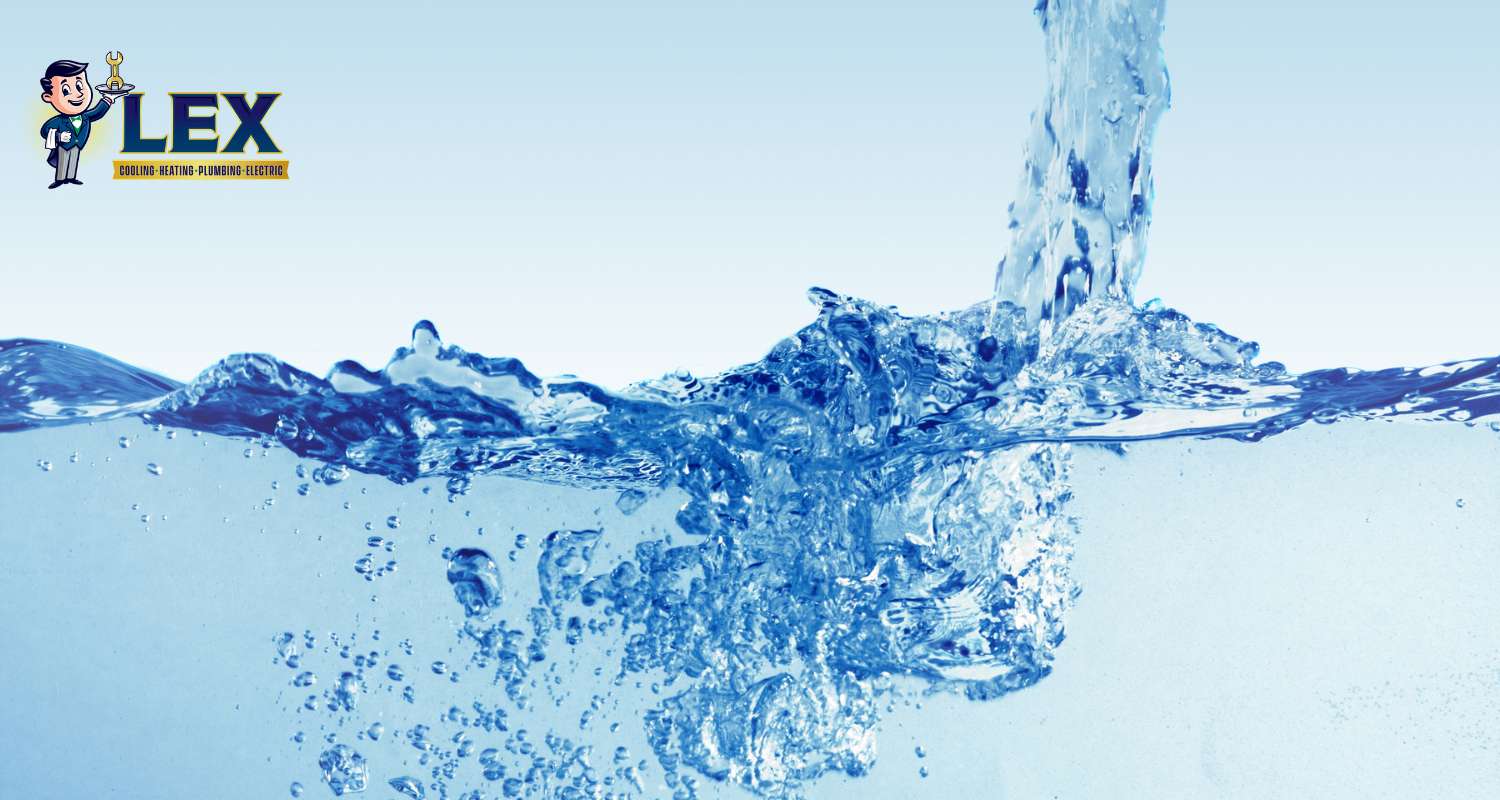
How To Get Rid of Hard Water
Fortunately, there are ways to address and remedy the hardness of water in your Carrollton plumbing system. Eliminating hard water can be achieved through various methods, such as boiling water to precipitate out minerals or using citric acid to dissolve mineral deposits. Boiling water temporarily reduces hardness by removing some minerals, while citric acid is effective for cleaning scale buildup.
For a more permanent solution, water filtration and water softener system installation from our plumbing experts at Lex Air can effectively address hard water issues in your home.
Water Filtration Systems in Carrollton, TX
Water filtration systems remove minerals like calcium and magnesium using methods such as reverse osmosis and activated carbon filtration. Reverse osmosis forces water through a semipermeable membrane to filter out impurities, while activated carbon filtration uses carbon to absorb contaminants.
These systems provide cleaner, better-tasting water, reduce scale buildup, and extend the lifespan of appliances and plumbing fixtures.
Water Softening Systems in Carrollton, TX
Water softening systems, also called water softeners, use salt to replace calcium and magnesium ions with sodium ions, converting hard water into an insoluble substance. Installing water softeners offers cost savings and improved appliance longevity by preventing scale buildup and enhancing efficiency.
Why Choose Lex Plumbing for Water Quality Improvement?
At Lex Plumbing, our experienced Carrollton plumbing professionals have extensive experience in addressing water quality issues, making us the go-to choice for all your plumbing needs. With a team of highly skilled professionals, we specialize in installing and maintaining water filtration and softening systems, ensuring the highest water quality for your home or commercial business.
With the help of Lex, business and homeowners in the DFW Metro area can experience significant improvements in their water quality, resulting in better-tasting water and prolonged appliance life. Our commitment to customer satisfaction and service excellence sets us apart, making us a trusted partner for our local residents’ water quality and plumbing needs.
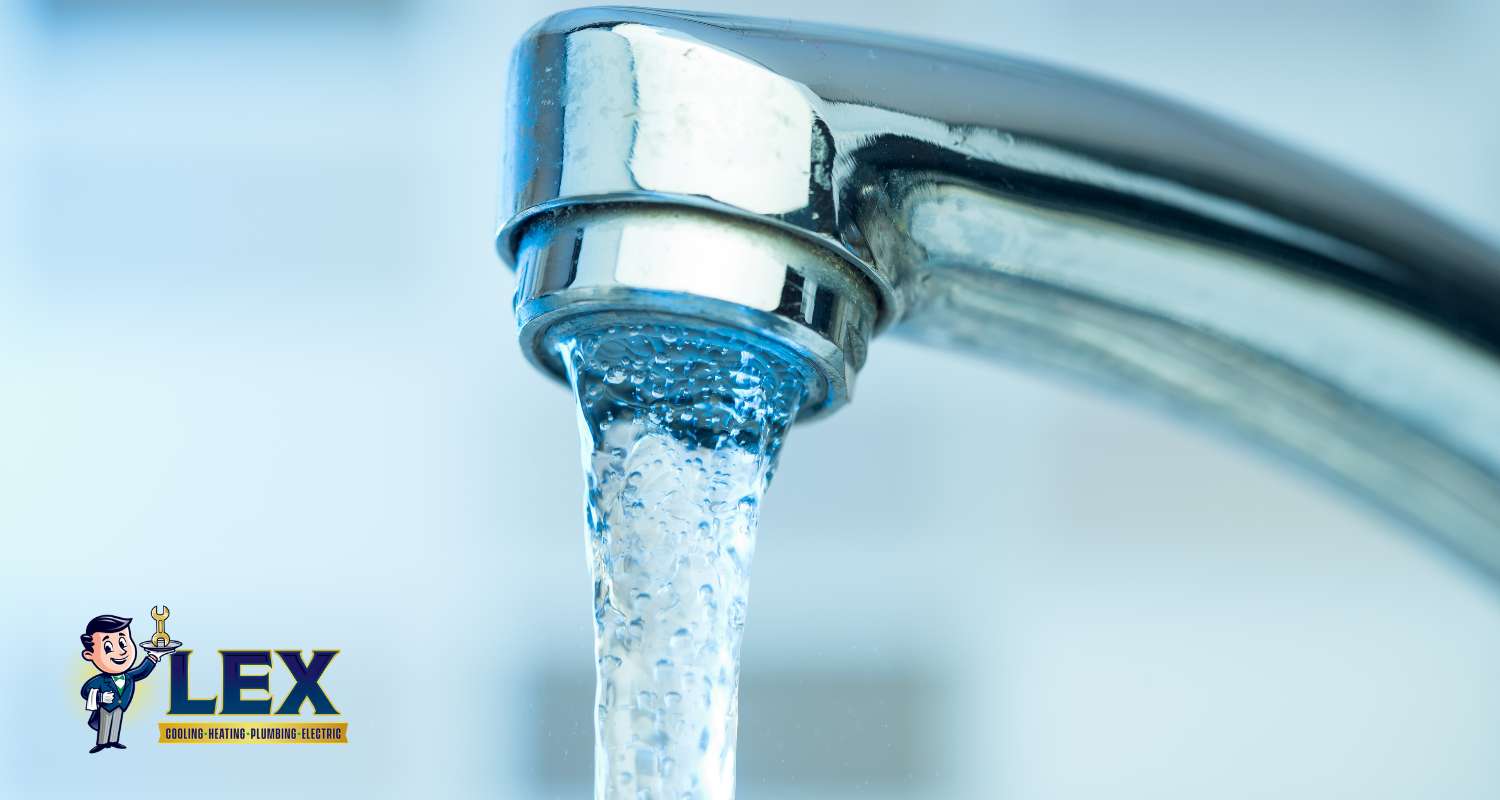
Call Lex For Top-Notch Water Quality Improvement Solutions in North Central Texas
As you can see, hard water can cause numerous issues, from dry skin and hair to scale buildup in appliances and plumbing fixtures. Not to mention the increased use of detergents and cleaning products and higher energy consumption lead to higher costs and environmental impact. Addressing these problems with water quality improvement solutions is essential for a healthier, more efficient home.
Consider the benefits of enhancing your water quality with Lex Plumbing’s expert services. Whether through water softening systems or advanced filtration methods, Lex Plumbing offers reliable solutions tailored to your needs. Don’t let the disadvantages of hard water affect your daily life and the longevity of your appliances.
Contact Lex Plumbing today and discover how our top-notch water quality improvement solutions in Carrollton and the surrounding areas can transform your home or property. Call (972) 217-8955 now to get started on improving your water quality.
